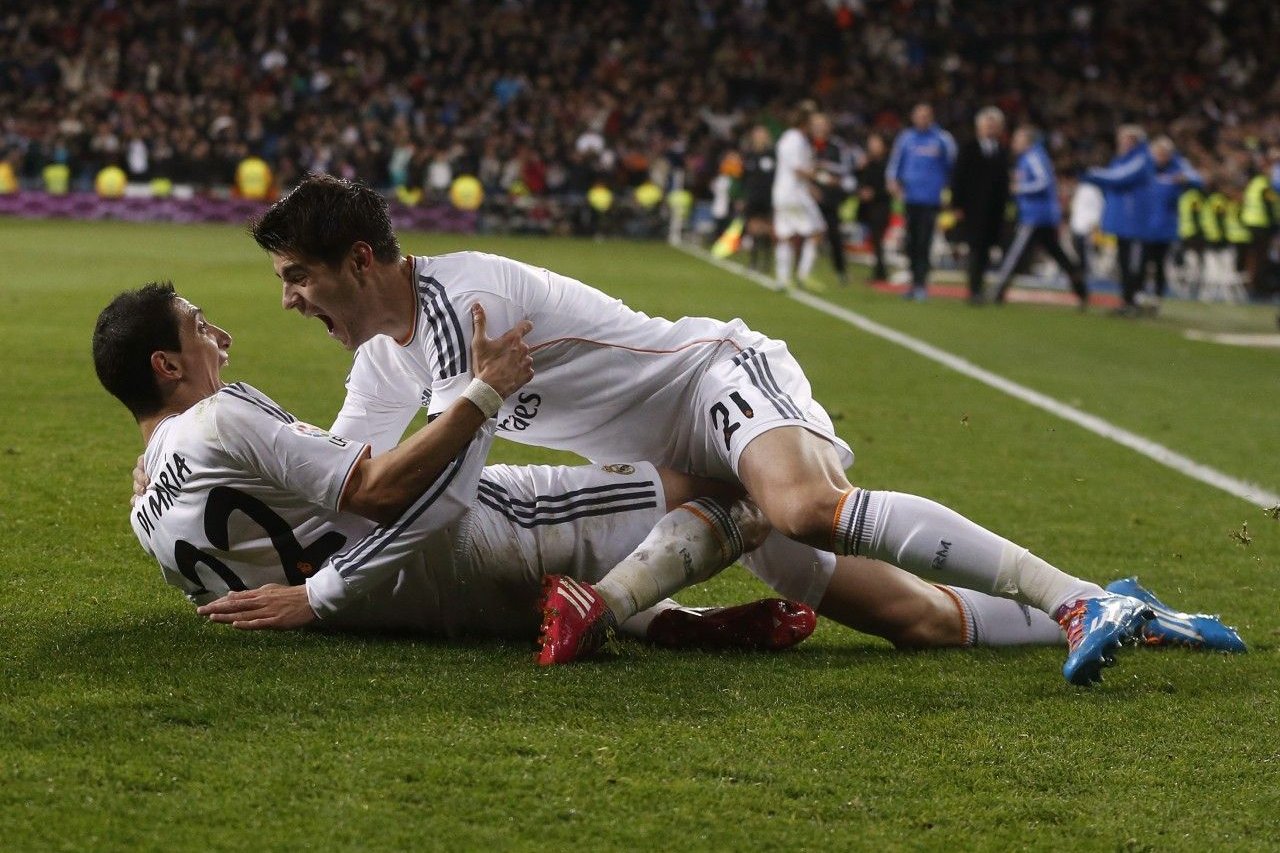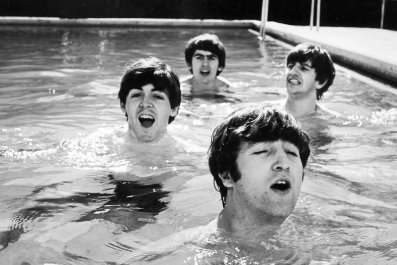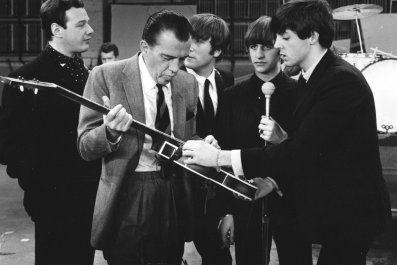I don't know how many words the Eskimos have for snow, but there are, by my count, at least 73 ways to score a goal in soccer. Whether you have banged, blasted, ripped, curled, poked, fizzed, chipped, squibbed, lobbed, glanced, danced or dinked one into the net, more than a century of scoring has ensured that the appropriate verb is available.
Scoring is soccer's fundamental act, and the existence of so many words to describe it reflects our desire to index every aspect of the game. The 90 minutes of a match are dwarfed by the hours we spend previewing and then dissecting it, picking over the transfer rumors, disciplinary controversies, cognitive-behavioral diagnoses, statistical breakdowns, and tactical micro-analyses. We've been flirting with the saturation point for years, yet we keep finding new ways to think about, look at and make fun of Mario Balotelli's camouflage Bentley.
The football cliché has become my personal obsession. I find some infuriating, others charming. It is this complicated relationship with the language of the sport that led me to start a blog called Football Clichés seven years ago. You will hear them pretty much anywhere a ball is being kicked and a mouth is being opened, but it is most often the television commentator and his color man who are guilty of inflicting football clichés upon us.
They are symptomatic of the mediocrity of modern soccer coverage, but not all these clichés betray a lack of original thought. In a century and a half, nothing has encapsulated the unpredictable swings of a soccer match more succinctly than "a game of two halves," and it has become a cliché to denounce it as a cliché. Other well-worn words and phrases contain some truth, but that doesn't mean they won't make your ears bleed. The brink of halftime is habitually declared "a good time to score," an indisputable bit of wisdom that raises the question: When isn't? Football players would rather make passes and tackles than talk about them, and football clichés give them something safe to say before returning to the sanctuary of their Beats by Dre headphones (themselves a cliché). Scoring is "always nice." The win was "good for the team." In these cases, accepted wisdom is a comfort.
Some football clichés are conspicuous for their soaring idiocy. A shot that, despite its impressive power, flies straight into the (usually "grateful") hands of the goalkeeper is said to have been "hit almost too well." The curiously precise "opening 20 minutes" has become universally accepted as the window during which an underdog should aim to "keep it tight." Any skillful player over six feet tall risks the patronizing label of having "a good touch for a big man."
The game possesses a surprising number of obsolete words that originated elsewhere but still flourish here. Most fans would perhaps never use "stalwart," "profligate," "adjudged," "diminutive," or "rifle" (as a verb) if those words hadn't been kept alive in a sports context. Nor would they ever describe something being done with "aplomb" or be able to identify a real-life slide rule. Soccer corrupts old adages, too - players returning to their former clubs with a point to prove are said to be "chomping" (rather than the traditional champing) at the bit to perform well on their old "stomping" (stamping) ground.
As the discussion of soccer proliferates in the 21st century, the churn of clichés has accelerated. It is only recently that Stoke usurped Rochdale as the coldest, wettest place to play on a Tuesday night. The perilous "corridor of uncertainty" arrived on loan from the cricket world sometime in the 1990s and has since made a permanent transfer, while "taking on fluids" became the new drinking in 1994, as pitch-level temperatures soared at the World Cup in the United States.
Most recently, the 140-character confines of Twitter have become fertile ground for tiresome tropes. Snappy ways of expressing your approval for a moment of footballing decency, such as #nicetouch or #classy, are on the rise. Footballers are trendsetters, and the moment they hashtag something, it's gift-wrapped for their following millions. Ashley Cole's glorious #BUNCHOFTWATS attack on the Football Association instantly entered the lexicon, mainly for purposes of lampoonery. Twitter gags, GIFs, and Photoshop jobs are now the lingua franca of the modern fan, with pagan tribalism driving the ridicule of rival players long after the joke has gone limp.
As the coverage of soccer reaches uncritical mass, it is perhaps right to embrace the cliché and recognize its place in the landscape. Right feet will never be cultured, and small men will never be lauded for their good touch, but just as it seems soccer might be running out of ways to describe itself, the soccer cliché, that petty criminal, may have earned a stay of execution.
A print version of this story can be found in the current issue of Howler.

























